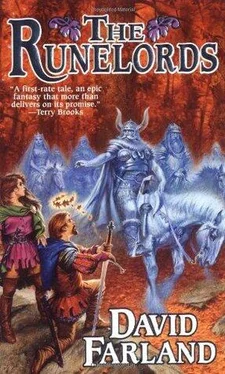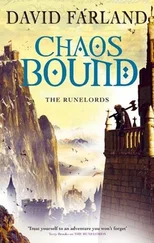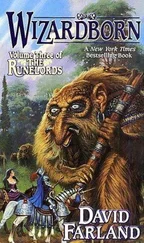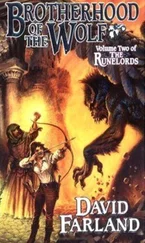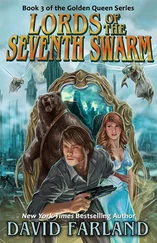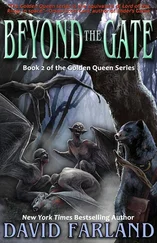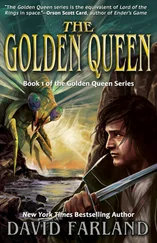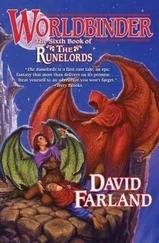David Farland - The Sum of All Men
Здесь есть возможность читать онлайн «David Farland - The Sum of All Men» весь текст электронной книги совершенно бесплатно (целиком полную версию без сокращений). В некоторых случаях можно слушать аудио, скачать через торрент в формате fb2 и присутствует краткое содержание. Жанр: Фэнтези, на английском языке. Описание произведения, (предисловие) а так же отзывы посетителей доступны на портале библиотеки ЛибКат.
- Название:The Sum of All Men
- Автор:
- Жанр:
- Год:неизвестен
- ISBN:нет данных
- Рейтинг книги:3 / 5. Голосов: 1
-
Избранное:Добавить в избранное
- Отзывы:
-
Ваша оценка:
- 60
- 1
- 2
- 3
- 4
- 5
The Sum of All Men: краткое содержание, описание и аннотация
Предлагаем к чтению аннотацию, описание, краткое содержание или предисловие (зависит от того, что написал сам автор книги «The Sum of All Men»). Если вы не нашли необходимую информацию о книге — напишите в комментариях, мы постараемся отыскать её.
The Sum of All Men — читать онлайн бесплатно полную книгу (весь текст) целиком
Ниже представлен текст книги, разбитый по страницам. Система сохранения места последней прочитанной страницы, позволяет с удобством читать онлайн бесплатно книгу «The Sum of All Men», без необходимости каждый раз заново искать на чём Вы остановились. Поставьте закладку, и сможете в любой момент перейти на страницу, на которой закончили чтение.
Интервал:
Закладка:
No one could defy the Days. Nor did Gaborn feel certain that any man should want to do so. An old adage went, “A man who will not bear scrutiny cannot bear a crown.” It was said that those words were given by the Glories themselves, when the Days were first partnered to the kings. “A Runelord should be a servant to man,” the Glories had said.
So Gaborn's title came with a price. He would never be free of this man, never be alone. Though he might rule a kingdom, some things were right-fully denied even to Gaborn.
Lost in thought, Gaborn wondered once again about Borenson. The man was a soldier, and soldiers did not necessarily make good lords, for they were trained to solve every problem through use of force. Gaborn's father preferred to sell titles to merchants, who were trained to barter for what they wanted. Gaborn suddenly realized that the Days had never fully answered him, had avoided the question.
“I said, 'Borenson is a good man, isn't he?' ”
The Days looked up, his head nodding just a bit. The disciple was well on his way to being solidly drunk. He poured more wine. “Not nearly so good as you, Your Lordship. But he'll make her happy enough, I'd wager.”
Your Lordship. Not my lord.
“But he's a good man, isn't he?” Gaborn asked a third time, suddenly angry at the Days' evasion.
The Days looked away, started to mumble something.
Gaborn struck the table hard enough so the wine bottles jumped and the mugs clanked. He shouted, “Answer me!”
The Days gaped in surprise. He knew to take warning. Fists would soon fly. Gaborn had endowments of brawn from three men. His blow could kill a commoner.
“Hah—what does it matter, Your Lordship?” the Days averred, struggling to clear his muddled thoughts. “You've never worried about his goodness before. You've never questioned his moral fiber.”
The Days took another swig of wine, seemed to want more, but thought better of it and carefully set the mug aside.
Why am I questioning Borenson's moral character? Gaborn wondered, and the answers flowed to him: Because you were drinking addleberry wine and noticed how Days tried to evade the question. Because Myrrima said that Princess Iome doubts your own goodness, and now you are worrying at what others think. Because...because you know that any lout can win a parcel of land, but it takes a special kind of king to win the hearts of his people.
Gaborn hoped to win the hearts of Iome and her people. But he dared not reveal details of his plan to Days—or to anyone. If Gaborn's father, King Orden, learned what Gaborn planned, the King might try to stop him.
The wine was having its way with Gaborn now, bringing the world into focus. But Gaborn would not be sidetracked from his questioning by other observations. “Answer my question, Days! What do you think of Borenson ?”
The Days put both hands on the table, screwed up his courage. “As you wish, Your Lordship: I once asked Borenson what his favorite animal is, and he told me he 'admires dogs.' I asked him why, and he answered: 'I love to hear them snarl. I love the way they greet strangers with senseless aggression.' ”
Gaborn laughed. It was the kind of perfect thing Borenson would say. The man was a terror in battle.
The Days seemed relieved by Gaborn's good humor. He leaned forward conspiratorially. “To tell you the truth, Your Lordship, I think Borenson admires another attribute in dogs. One he did not name.”
“Which is?”
“Loyalty.”
Gaborn laughed harder. “So, Borenson is a dog?”
“No. He only aspires to be one. If I may be so bold, I fear he has all of dog's finest virtues but loyalty.”
“So you don't believe he is a good man?”
“He's an assassin. A butcher, Your Lordship. That is why he is captain of your guard.”
This angered Gaborn. The Days was wrong. The historian smiled drunkenly, took another swig to fortify his courage.
The Days continued, “In fact, none of your friends are very good people, Your Lordship. You don't value virtue in your friends.”
“What do you mean?” Gaborn asked. He'd always thought his friends had an acceptable level of virtue.
“It is simple, Your Lordship,” the Days said. “Some men pick their friends based on looks, others on wealth or political station, others on common interests. Some choose friends based on their virtue. But you do not value any of these traits, highly.”
It was true, Gaborn had friends among the ugly, the powerless. His friend Eldon Parris sold roasted rabbits in a public market. And Gaborn also enjoyed the company of more than one person who might best be described as a scoundrel.
“Then how do I pick my friends?” Gaborn asked.
“Because you are young, you value men based upon their insights into the human heart, Your Lordship.”
This statement struck Gaborn like a blast of air off a frozen lake. It was stunning, refreshingly honest, and, of course, obviously true.
“I had never noticed...”
The Days laughed. “It's one of the seven keys to understanding motives. I fear, young master Gaborn, you are lousy at picking friends. Hah! I sometimes imagine how it will be when you are a king: You'll surround yourselves with eccentrics, and scholars. In no time they'll have you taking garlic enemas and wearing pointy shoes! Hah!”
“Seven keys? Where did you learn such lore?” Gaborn asked.
“In the Room of Dreams,” the Days said. Then he suddenly sat up straight, recognizing his mistake.
In the House of Understanding, the Room of Dreams was forbidden to Runelords. The secrets one learned there, of human motivations and desires, were considered by scholars to be too powerful to put in the hands of a king.
Gaborn smiled triumphantly at this little tidbit, raised his glass in toast. “To dreams.”
But the Days would not toast with him. The man would most likely never drink in Gaborn's presence again.
From a far corner of the room, a small ratlike ferrin woman came out of the shadows, bearing one of her pups in hand. The pup squealed in its small way, but the Days did not hear it, didn't have Gaborn's keen ears. All six of the ferrin woman's nipples were red and swollen, and she wore a yellow rag tied round her shoulders. She stood only a foot tall, and her pudgy face was accented by thick jowls. She waddled up behind the Days, nearly blinded by daylight, and stuffed the pup in the Days' coat pocket.
The ferrin were not an intelligent people. They had a language of sorts, used some crude tools. Most folk considered them vermin, since the ferrin constantly tunneled into houses to steal food.
Gaborn had heard it was common for a ferrin woman to wean her pups this way, by finding an inn, then sending the pup off in the pocket of a stranger. But he'd never seen it happen.
Many a man would have tossed a dagger into the ferrin. Gaborn smiled blandly, averted his eyes.
Good, he thought, let the pup eat the lining of the damned historian's coat.
He waited until the ferrin finished.
“And what of me?” Gaborn asked the drunken Days. “Am I a good man?”
“You, Your Lordship, are the soul of virtue!”
Gaborn smiled. He could expect no other answer. In the back of the common room, an Inkarran singer struck up the mandolin, began to practice for the crowd that would gather later. Gaborn had seldom seen an Inkarran play, since his own father would not let them cross the borders, and he enjoyed the diversion now.
The Inkarran had skin as light as cream and hair that fell like liquid silver; his eyes were as green as ice. His body was tattooed in the manner of his tribe—blue symbols of vines twining up his legs, with images that brought to mind the names of his ancestors and his home village. On his knees and arms were images of knots and other magic symbols.
Читать дальшеИнтервал:
Закладка:
Похожие книги на «The Sum of All Men»
Представляем Вашему вниманию похожие книги на «The Sum of All Men» списком для выбора. Мы отобрали схожую по названию и смыслу литературу в надежде предоставить читателям больше вариантов отыскать новые, интересные, ещё непрочитанные произведения.
Обсуждение, отзывы о книге «The Sum of All Men» и просто собственные мнения читателей. Оставьте ваши комментарии, напишите, что Вы думаете о произведении, его смысле или главных героях. Укажите что конкретно понравилось, а что нет, и почему Вы так считаете.
